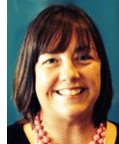
| Massachusetts Pre-K Legislation Gains Support |
On September 16 at the State House, proposed legislation that would expand and improve early education and care received ringing endorsements from a diverse chorus of supporters during a hearing held by the Legislature’s Joint Committee on Education. A standing-room-only audience filled Hearing Room B-1 for more than four hours to support a range of early education bills. Parents and early educators as well as policymakers and advocates explained how high-quality programs, taught by well trained and compensated teachers in a mixed-delivery system of public school and community-based classrooms, would benefit both children and the state at large. Read more about the day’s proceedings, captured in words and photos by our Eye on Early Education blogger Alyssa Haywoode, as well as in several print and television media outlets. We will continue to work with the Joint Committee on Education and early education advocates to see that a comprehensive Pre-K expansion bill passes this legislative session. |
| 2015 MCAS Shows Stagnant Performance in Third Grade Reading |
In Massachusetts, only 60 percent of third graders are proficient readers, according to the 2015 MCAS results released last month. The Department of Elementary and Secondary Education noted that for third grade reading, despite a small increase over 2014, “scores have been essentially flat over the past six years.” This year, more than half of all districts chose to administer the PARCC assessment instead of MCAS, and those results will be released by DESE in mid-November. Chris Martes, president and CEO of Strategies for Children, commented, “We are glad to see third grade reading proficiency rates improve slightly, but are troubled by the slow pace of improvement. To move the needle on this critical benchmark, the state must make larger investments in the birth-to-5 early childhood system. No matter what test the state adopts, MCAS, PARCC, or some other option, substantially more children will need to meet reading benchmarks by the end of third grade. The future economic prospects of our commonwealth depend on it.” Read Chris’s full statement here. Visit DESE’s website for more information on state, district and school MCAS data. |
Check out our Eye on Early Education blog for recent stories you may have missed. |
Transforming Holyoke’s Public School System, October 8 The Impact of Early Education and Care on Parents and the Economy, September 30 A New Book Looks at Leadership in Early Education and Care, September 10 Remembering Gwen Morgan, September 9 |
EarlyEducationForAll @EarlyEd4All – Oct 5 ReadyNation @Ready_Nation – Oct 1 Helen Blank @BlankHelen – Oct 1 Boston Indicators @BostnIndicators – Sep 22 Massachusetts EEC @MassEarlyEdCare – Sep 18 MassEducation @MassEducation – Sep 17 Henoss Taddesse @henoss_t – Sep 16 Speaker Bob DeLeo @SpeakerDeLeo – Sep 10 |
notes from Amy
At SFC this translates into: sometimes you have to stop and consider if all the policies we are advocating for are making a difference. Recently, we have had the opportunity to do that. We travelled to Springfield for an event highlighting the federal Preschool Expansion Grant. It was inspiring to be in one building that brought together the public schools, community-based providers and Head Start all working toward the same goal – expanding access to high-quality early education for children in the community. We heard from Commissioner Weber, Mayor Sarno, Superintendent Warwick, several legislators, and local leaders about the importance of this collaboration and a shared commitment to making it work. At the statewide meeting of the Birth—Grade Three Grantees, funded by the Race to the Top Early Learning Challenge, we heard from eleven communities and regions of the state about promising practices and lessons learned as they strengthened relationships and focused on a community wide birth—age eight agenda. Many of the ideas we have discussed, debated and considered over the last 15 years were in motion—shared professional development, the transition to kindergarten, connecting early education to the early elementary grades, local leadership, the definition of “high-quality” and how to measure it, and the critical role of early educators and how to support them. I have said it before, but it does feel like we are at a tipping point. The question is not IF we are going to focus on and invest in high-quality early education, the question is HOW. We look forward to helping to make those “hows” a reality. The children and families in the Commonwealth are counting on us. Thank you for your leadership.
|
 Sometimes you have to stop and smell the roses.
Sometimes you have to stop and smell the roses.
